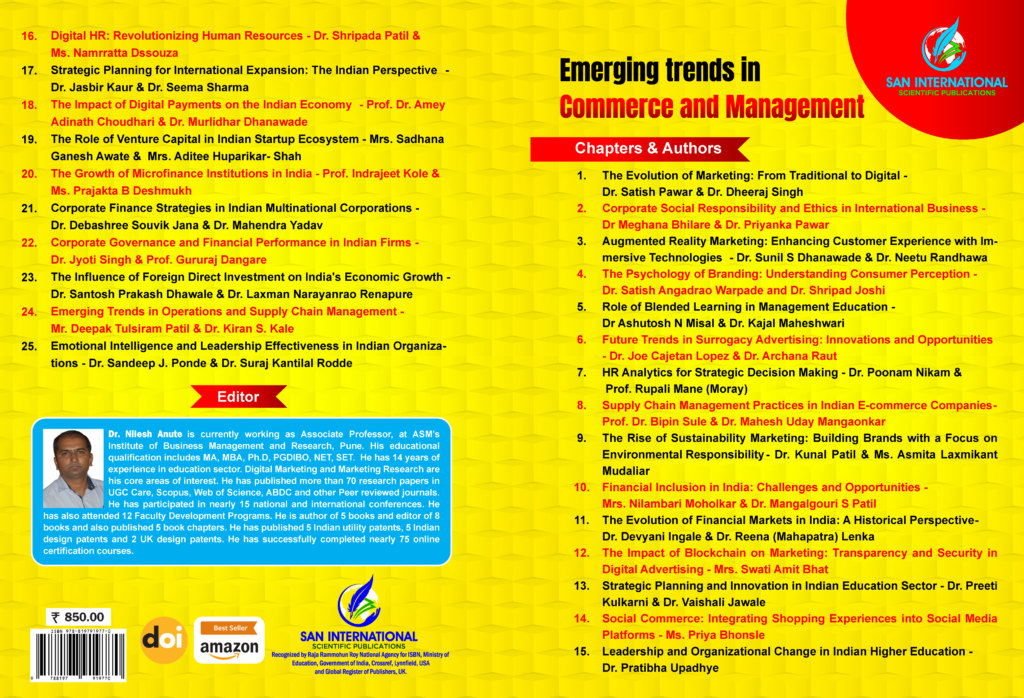Book Title: Emerging Trends in Commerce and Management
Editor: Dr. Nilesh Anute
ISBN: 978-81-979197-7-0
Chapter: 22
DOI: https://doi.org/10.59646/emc22/255
Authors:
Dr. Jyoti Singh, Associate Professor, MET’s Institute of Management, Bhujbal Knowledge City, Adgaon, Nashik, Maharashtra, India.
Prof. Gururaj Dangare, Head, Department of MBA, Pratibha Institute of Business Management, Chinchwad, Pune, Maharashtra, India.
Learning Objectives
The learning objectives are designed to impart a thorough comprehension of corporate governance principles and their importance in Indian firms. They involve examining the connection between governance practices and financial performance, recognising the key governance mechanisms and their effects, assessing the effectiveness of governance regulations and reforms in India, and applying theoretical frameworks to evaluate governance issues in practical situations. This involves acknowledging the significance of transparency, accountability, fairness, and responsibility. It also involves evaluating the composition of the board, executive compensation, and audit committees. Additionally, it includes assessing regulatory frameworks such as the Companies Act and SEBI guidelines. Furthermore, it entails applying theories like agency and stewardship theory to thoroughly analyse and suggest remedies for governance issues.
References
- Rosenberg, L. J., & Posner, L. D. (1979). The Logical Framework: A Manager’s Guide to a Scientific Approach to Design and Evaluation. Washington: Practical Concepts.
- Rutherford, T. D., Murray, G., Almond, P., & Pelard, M. (2018). State accumulation projects and inward investment regimes strategies. Regional Studies, 52, 572–584.
- Saka-Helmhout, A. (2020). Institutional agency by MNEs: A review and future research agenda. Journal of International Management, 26, 1–17.
- Saka-Helmhout, A., Chappin, M. M. H., & Rodrigues, S. B. (2021). Corporate social innovation in developing countries. Journal of Business Ethics, 181, 589–605.
- Santos, F., Pache, A.-C., & Birkholz, C. (2015). Making hybrids work: Aligning business models and organizational design for social enterprises. California Management Review, 57, 36–58.

